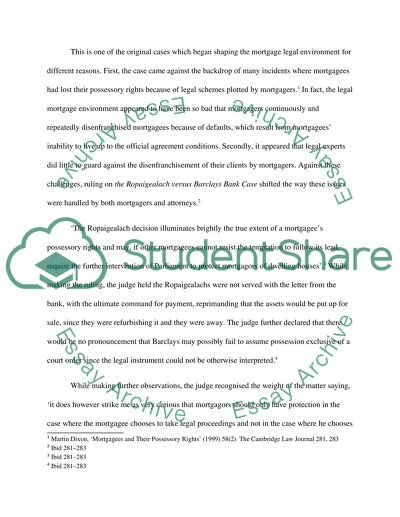Cite this document
(“Possessory rights of mortgagees Essay Example | Topics and Well Written Essays - 2250 words”, n.d.)
Retrieved from https://studentshare.org/law/1404033-possessory-rights-of-mortgagees
Retrieved from https://studentshare.org/law/1404033-possessory-rights-of-mortgagees
(Possessory Rights of Mortgagees Essay Example | Topics and Well Written Essays - 2250 Words)
https://studentshare.org/law/1404033-possessory-rights-of-mortgagees.
https://studentshare.org/law/1404033-possessory-rights-of-mortgagees.
“Possessory Rights of Mortgagees Essay Example | Topics and Well Written Essays - 2250 Words”, n.d. https://studentshare.org/law/1404033-possessory-rights-of-mortgagees.


